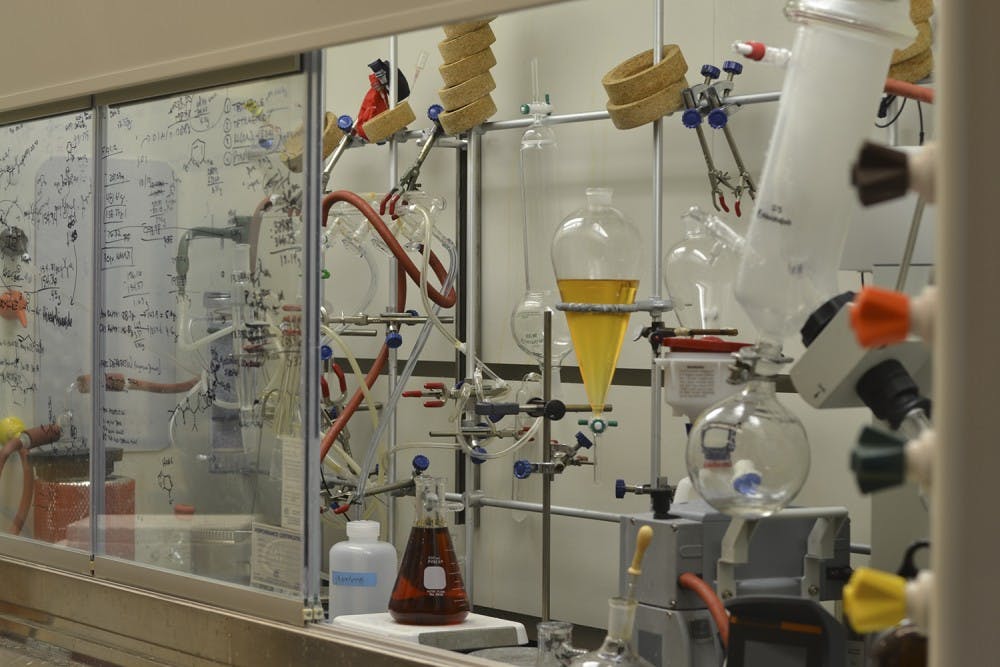Friedman said the students would be involved in applied research.
“It’s research geared at trying to solve problems presenting themselves to society now,” Friedman said. “Basically, research problems where there’s a definite need.”
There are also plans to develop a similar undergraduate program in the future, though Friedman said this program is not as far along.
Thakker supports the idea of distributing the money to benefit faculty, staff and students alike.
“Students are clearly very important generators of ideas, so funding of ideas will be extended to students as well,” Thakker said.
Entrepreneurial opportunities
While the program is being developed to include students in research opportunities, faculty like Shawn Hingtgen, assistant professor in the pharmacy school, have gotten opportunities through the Eshelman donation as well.
Hingtgen has used the Eshelman money to continue his research and found a startup, Falcon Therapeutics, to commercialize his stem-cell treatment for people suffering from brain cancer.
“The company was meant to help in two ways: to commercialize the stem cell products we make but also to move the products into clinical trials,” he said.
Hingtgen said without the Eshelman money, transitioning his new technologies from the lab to clinical trials, and eventually to patient treatment, would take much longer.
“It allows for research and commercialization to happen simultaneously,” he said.
Hingtgen said while other funding groups shy away from innovative, risky ideas, the Eshelman board encourages them.
To get the day's news and headlines in your inbox each morning, sign up for our email newsletters.
Looking toward the future
Joe Moore, a post-doctoral fellow at the Institute, said he admires that Eshelman did more than just donate money.
“He’s a member of our steering board, and he gives us guidance and helps provide philosophy, and I think it’s really his spirit of innovation and entrepreneurialism that has made him as successful as it has — that, in a lot of ways, helps provide us with the inspiration to go and do the things that we’re doing,” Moore said.
Blouin said he has high hopes for the Eshelman money in the future.
“We want to create a culture of innovation across our entire organization, and we believe that students are going to become an integral part of that,” Blouin said.
university@dailytarheel.com




